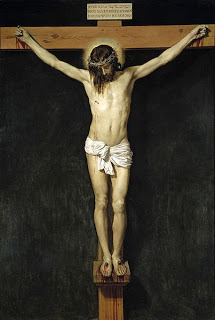Soon after I began following Jesus, I read the book, “The Blessings of Brokenness” by Charles Stanley. Honestly, I can’t remember a ton about what specifically the book said, but I just remember it really clicking with me.
In my past, I felt as if I needed to put on a show for people. To demonstrate that I had it all together, I had it all figured out. I would openly discuss parts of my life that I felt I had some handle on. The parts of my life where I felt overwhelmed, confused, and just plain broken – those parts I would hide from almost everyone.
I carried this method of concealing what was really going on into my Christian walk.
I think the bottom line, my core belief (you can read a thorough discussion of core beliefs in Russell Willingham’s book, “Relational Masks”) seemed to be: I can only share honestly about a struggle if I have that struggle figured out.
Core beliefs associated with that would be:
I will appear weak if I am honest.
I show I am strong if I share what I’ve overcome.
If I share my current struggles, everyone will know I’m broken.
Wow. What heavy burdens to carry. Burdens Jesus wanted to carry all along.
I’ve been mulling over this a lot after I recently shared with a group that I’m very comfortable with the fact that I am broken. Some people responded by laughing; some just looked at me strangely. Others nodded in agreement. Since then, I’ve been doing some pondering, some reading and wondering, what do I mean by brokenness?
In her book, “Brokenness, The Heart God Revives“, Nancy Leigh DeMoss says this: “Brokenness is the stripping of self-reliance and independence from God. The broken person has no confidence in his own righteousness or his own works, but he is cast in total dependence upon the grace of God working in and through him.”
Russell Willingham, in a book I’ve mentioned previously called ““Breaking Free”“, has an entire chapter devoted to this topic called “The Courage to be Broken”. He defines brokenness simply as “spiritual poverty” or being “poor in spirit” and asserts “we must grasp our fundamental brokenness and stop pretending we are something else.” He distinguishes between brokenness and sinfulness:
The main reason we struggle with the idea of brokenness is that we see it as a sign of sin. Though the two are related and often overlap, they are not the same thing.
Willingham talks about David’s statement in Psalm 109:22: “For I am poor and needy, and my heart is wounded within me.” He writes that brokenness comes from being wounded. “This wounding can come from being born into a fallen world, being sinned against by others, or committing sins of our own.” Here’s why the distinction is so important to understand:
The man who understand this [that we are broken/wounded] doesn’t condemn himself when the old system fires up again. He expects such occurrences but quickly defaults to the new settings as soon as he realizes what is happening. However, the man who doesn’t understand his fundamental brokenness berates himself when the old machinery kicks into gear. He then falls into self-loathing or says, “What’s the use?” and gives in.
Brokenness is spiritual poverty.
Acknowledging my brokenness allows God to breath life into me, embracing the humility to permit Him to shape me into whom He created me to be.
Brokenness means that Jesus’ salvation didn’t transform me into something other than a human being. Accepting my brokenness is simply stating that I’m imperfect and that’s OK; I don’t have to pretend to be something I am not. It means that salvation began the process of transforming me into a new person, but that process is not complete.
I do not coddle my brokenness, or use it as an excuse for sin or bad decisions. It’s just a simple declaration that apart from Jesus, I can do nothing.
One of the ways I define brokenness today (a saying borrowed from 12-step groups) is:
I can’t. God can. I think I’ll let God.
“True brokenness is a lifestyle – a moment-by-moment lifestyle of agreeing with God about the true condition of my heart and life – not as everyone else thinks it is but as He knows it to be.” Nancy Leigh DeMoss


